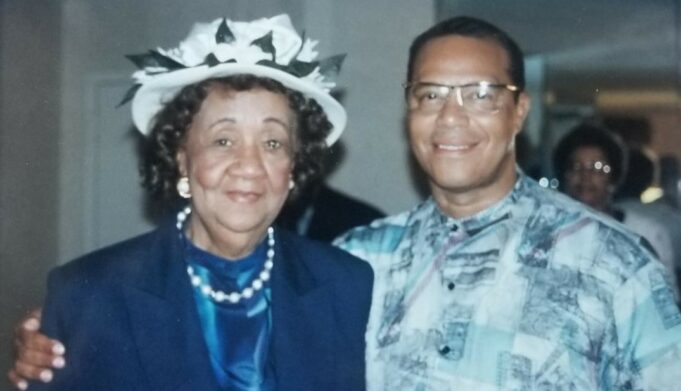“Our talking to men may have been seen by some as a threat to women, but most Black women loved the idea of our trying to raise the level of consciousness of Black men. Many mothers brought their sons to the ‘men-only’ meetings; many wives encouraged their husbands to come. When the women at home saw what the men committed themselves to do, they rejoiced. And, in fact, the Million Man March would never have been successful if it were not for the women who stood with us and helped to organize to make the March what it eventually became.” —the Honorable Minister Louis Farrakhan
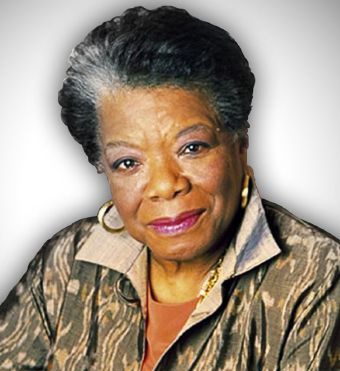
WASHINGTON—They are a sisterhood of service that changed the world. These women were the movers and shakers behind the 1995 historic Million Man March, called by the Honorable Minister Louis Farrakhan.
Claudette Marie Muhammad was National Deputy Director second only to the march’s National Director Benjamin Chavis. Washington, D.C.’s first lady in 1995 was Cora Masters Barry and she organized women and the National Voter Registration Drive. Dr. Dorothy Height, head of the National Council of Negro Women, was the first national Black civil rights luminary to support the march publicly and vocally. Fredrica Bey organized the state of New Jersey to send 50,000 men to the March and Charlene Muhammad was the National MGT (Muslim Girls Training) Captain of the Nation of Islam at the time, organizing all of the women in mosques around the country. A special poem written by Dr. Maya Angelou for the march was recited that Monday, October 16 day by 10-year-old Tiffany Mayo.
The Million Man March, which drew nearly two million men to the Nation’s Capital, would not have been as successful were it not for the Black women who organized, rallied, supported and spoke the months leading up to the tremendous gathering and on that day.
“I worked to have the women involved as much as possible because sisters were feeling very threatened,” Claudette Marie Muhammad told The Final Call. “Many felt excluded because the whole purpose of the Million Man March was to uplift the Black man. The Minister wanted the men to be empowered from the march, go back to their families, join various organizations and do better jobs at taking care of their families,” said Claudette Marie Muhammad, a longtime aide to Min. Farrakhan and who served as National Protocol Director for the Nation of Islam.
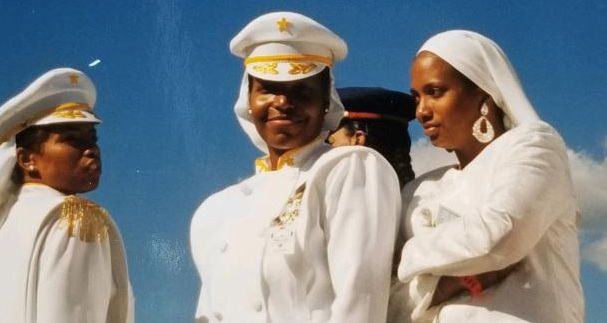
“My primary job was to work with Reverend Dr. Benjamin Chavis. I also did a lot of public relations with the Congressional Black Caucus and working with first lady Cora Masters Barry, as we organized the women in support of the March. I worked with Dr. Dorothy Height who unfortunately received a lot of criticism because of her support for the March. She was attacked so badly at one point that she had to be hospitalized,” recalled Claudette Marie Muhammad.
Dr. Height, the legendary activist who was the contemporary of Dr. Martin Luther King Jr., A. Philip Randolph, John Lewis and other civil rights stalwarts was criticized for embracing Min. Farrakhan and his call to Black men when it was an unpopular stance. Min. Farrakhan’s call was mocked, ridiculed, and condemned not only by Whites and Jews but by some prominent and not-so-prominent Black civil rights and religious leaders and women’s groups.
While the media and the world saw the nearly two million men that attended the march and heard the brilliance of Min. Farrakhan’s speech what these women and others did is not as widely known.
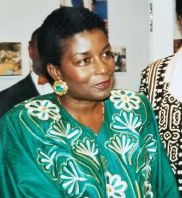
“The women were the force behind the momentum of the Million Man March,” Ava Muhammad, national spokesperson of Min. Farrakhan, told The Final Call. “Once the Honorable Minister Louis Farrakhan was guided to call for the March, there was a lapse in time before many Black organizations supported it. The first person to publicly announce their support and endorsement of the Million Man March was the late Dr. Dorothy Height of the National Council of Negro Women and because of her stature it opened a floodgate of support.”
Dr. Dorothy Height was no stranger to controversy when she supported the Million Man March. She had received a scholarship to Barnard College but was rejected when she arrived to register. The school had reached its quota of “two negroes.”
“I couldn’t bear to call home and report that I wasn’t going to college after all—that they didn’t want me,” Dr. Height wrote in her memoir “Open Wide the Freedom Gates.” She rushed to apply to New York University where she was accepted. Even with a scholarship, like many students she needed extra money. She ironed clothes for Broadway performers, wrote obituaries for a Harlem mortician and was a proofreader for Marcus Garvey’s weekly newspaper The Negro World. She was a co-organizer of the 1963 March on Washington.
When she was told about the Million Man March, supporting it seemed like the right thing to do. However, she was cautioned against it. But that was not the way Dr. Height lived her life. She was guided by principles not the whim of people.
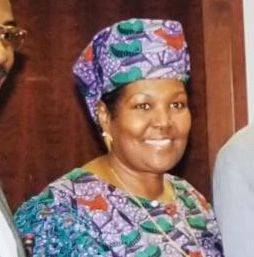
Dr. Height wrote in her memoir, “When I made my decision public (to support Minister Farrakhan), the phone started ringing. People called from all over to express their concern. One call, from some of my closest friends, came from Martha’s Vineyard. ‘We are calling you from a house full of your friends,’ they said. ‘We beg you not to have anything to do with the Million Man March. You have never been tainted. Please don’t do it.’”
“Michelle Cowan, a good friend, did not hesitate to get to the point. ‘Dorothy,’ she said, ‘if you get involved with this march, I will no longer be able to justify Jewish support for the National Council.’
“‘Well then,’ I replied, ‘I guess I’ll just have to find more African-American support.’ I did not feel that my involvement with the march was in any way inconsistent with my beliefs or the positions on issues that I had taken all of my life,” Dr. Height concluded.
The controversy of the March continued. Cora Masters Barry, wife of D.C. Mayor Marion Barry, used her influence and invited Black women journalists and other women to a meeting in her home.
“The reporters were from different news outlets. I said let’s have a truce. Even if you don’t support the March, don’t write against it. Then I explained why I was supporting it,” she told The Final Call.
That began organizing the women, she explained. “Next, we told the Minister we wanted to see the mission statement. He sent it. We gathered around the table and we marked it up wherever we had concerns. Rev. Barbara Skinner read where it said it was a Day of Atonement. She added ‘and Reconciliation.’ We added two or three other things and the Minister accepted every one of our edits. That was when I knew he was serious about letting the women be actively involved.” Mrs. Masters Barry also led the voter registration drive. Minister Farrakhan was impressed with the turnout of voters that led to the reelection of Mayor Marion Barry. Mrs. Barry orchestrated registering 20,000 new voters and was able to get 19,000 of them to the polls to vote for her husband.
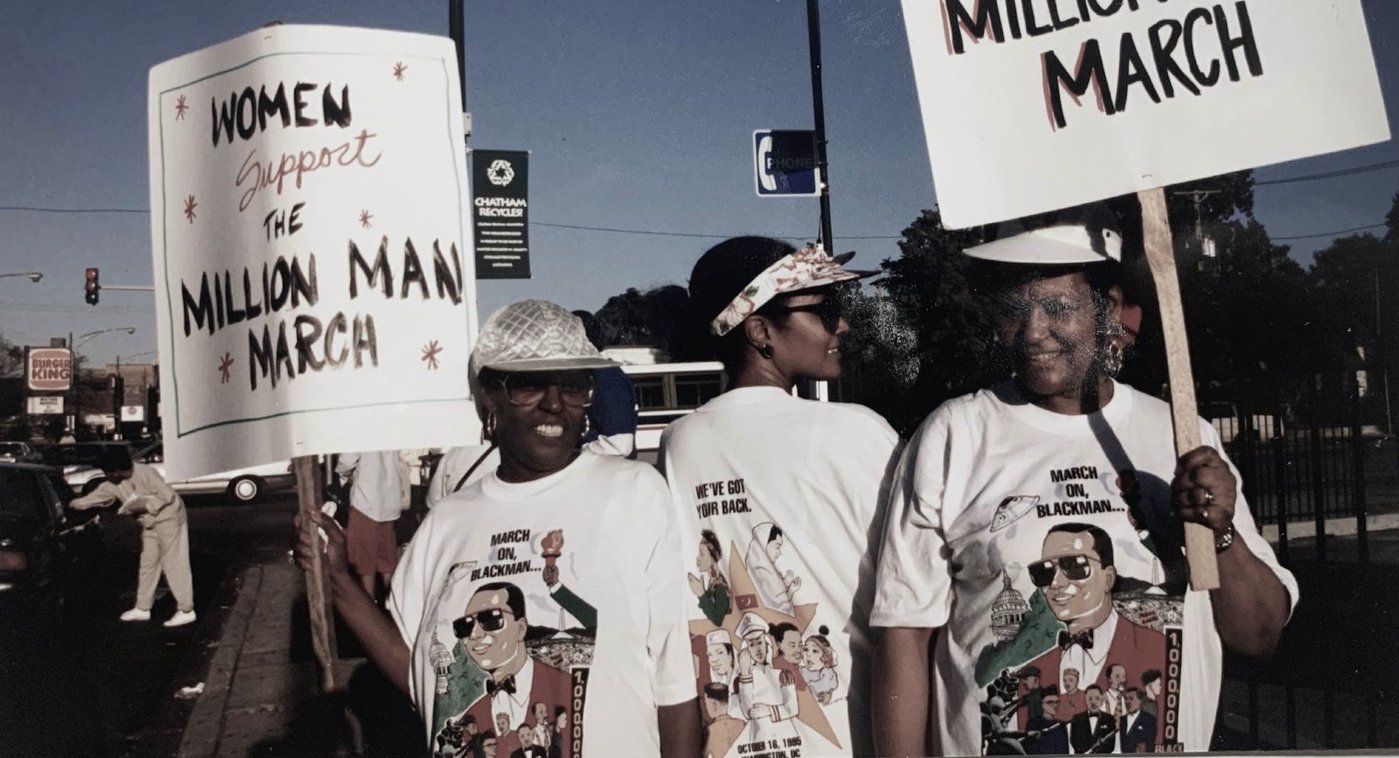
When the Minister asked Mrs. Barry to lead the voter registration program she initially turned him down because during his “Men’s Only” meetings around the country he was telling men to register to vote as Independents. The Minister wanted to know why that was a problem.
“I explained to him that if you are registered as an Independent, you can’t vote in the primary. Therefore, they choose who you vote for. It was called the ‘white primary’ where they gave Black folks the right to vote only in the general election because by that time, they would vote for the two choices that they made. If we do that here, then we won’t be able to choose who would be the main people running,” said Mrs. Barry.
She told Min. Farrakhan she would write a paper on the history of the Black vote to illustrate what she was talking about. “I gave him a one pager and he read it on the plane. Next thing I knew he called me and said ‘Cora whatever you want to do, I’m with you. If you want to register them as Republican or Democrat, you make that decision. You are the expert’. I said, okay, and I accepted the position.”
Voter registration took place all over the country. Mrs. Masters Barry assembled a team that included the Coalition of Black Voter Participation and partnered with Melanie Campbell. The group organized people to register on the spot and sent forms around the country.
Some thought it was only the men that should be registering people to vote and prevented some of her team from working. Those were not Mrs. Masters Barry’s instructions.
She reported what was happening to Min. Farrakhan. “The next day the women were registering voters. Rosalyn Styles headed it up and we had about 30-50 people out daily, but the women were running it. The voter registration project increased the voting of Black men considerably the next election cycle as a result of the Million Man March. We registered at least half million people,” she said.
In 1995 Charlene Muhammad was the National Muslim Girls Training (MGT) Captain, responsible for the teaching and training of women and girls of the Nation of Islam. The position was an awesome task and then there was the Million Man March.
“Minister Farrakhan wanted us to be inclusive of all the women in the community in our organizing work. He wanted representation not just from the sisters in the Nation of Islam but from other faiths as well. He wanted us to work with Hebrews, Christians, whatever denomination the sisters had, he wanted us to be inclusive,” she told The Final Call.
“We established Local Organizing Committees (LOCs) and we would meet weekly. Doris Lewis, Sister Zakiyyah Muhammad and Sister Florence Cox were very instrumental in helping the Nation on the grassroots level get the word out,” she said speaking about the longtime Chicago activists. “We passed out flyers on Chicago’s main streets. We did voter registration with the permission of stores,” recalled Charlene Muhammad.
She also traveled with Min. Farrakhan around the country organizing and inspiring women in each city. “I worked with them to set up their own Local Organizing Committee. They followed our model. Things started sparse but each week we saw an increase. We were able to get the word out to the churches, to the community, to everybody that we knew. It was a matter of letting people know about the March,” she explained. “I remember sitting with the Minister and his laborers at the National House. He gave each of us a mustard seed. I had never seen one, it was so small. He said all we had to do was have the faith of a mustard seed and we would be successful. After that we went to work.”
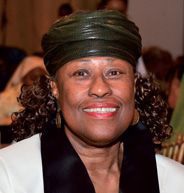
The model that was created in Chicago for the Local Organizing Committee was duplicated with near perfection in Newark by Fredrica Bey and her team of women. They organized and called themselves the Women in Support of the Million Man March (WISOMMM).
“We worked with Newark’s Minister (Abdul) Khadir Muhammad and the LOC chairman Larry Hamm. The Wall Street Journal said we sent 50,000 men from New Jersey to the Million Man March. The beauty was the way we just worked together throughout the whole state to make it happen. St. James AME Church was the first one to open their doors to us too. They had ample space to meet and hold different fundraisers so we could send the men to the March that could not afford it,” she told The Final Call.
“I’ll never forget that when the Minister heard we were raising money for men who couldn’t afford to go, he sent back word, if they can’t afford it let them stay home. The mission was for our men to step up not for the women to continue doing for them. He was right. We did everything he said and our community really kicked in, to send all those brothers.”
Her work didn’t end after the march. WISOMMM was just beginning. After the march, they were so inspired to do for self and rebuild their communities that the women returned to Newark and used the same model to purchase property, start a school and create jobs.
Since 1995 WISOMMM has established a viable institution that has made positive impacts on the lives of the families who live in the community it serves. The group represents a collective response of women and men changing the reality of their urban community.
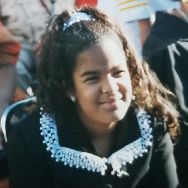
Tiffany Mayo was a tall 10 year old when she read a poem at the march written by Dr. Maya Angelou with words from Min. Farrakhan. Now an adult, she reflected on that momentous day with The Final Call.
“It was very nerve-racking to be on stage,” she said. “I knew that this was a big moment, but I don’t think I really understood just how big of a moment it was until I actually got out there and saw all the people. I was nervous. I took a lot of time to prepare for that day. I knew the poem backwards and forwards. It was just trying to get through the nerves of all of those people standing in front of me,” recalled Ms. Mayo.
“I realized how big a deal it all was when the news crews came to my school to interview me. It was just made it was such a big deal. I don’t think that I realized then what a major event this was in history and how what I did would be always remembered.”
The recitation changed the lives of many young girls and their families who had never seen themselves on such a large stage in front of the Capital speaking. The impact of the Million Man March is measured in the lives of youth, women and men touched by the numerous events that day.
“It was the wives, the daughters, the sisters, and the mothers who encouraged their sons, husbands and brothers to take part in the March. There is news footage where a mother was putting her adolescent son on a bus and she said to him, ‘come back a man,’” said Dr. Ava Muhammad.
“It was a wonderful thing to see our Black men from all walks of life. They came together for a day of Atonement, a day of Reconciliation, a day of Absence from service to the children of the slave master. They came together to glorify God and to make a commitment to their women and children. There’s never been anything close to this type of event,” reflected Dr. Ava Muhammad, an attorney, author and radio host.
“In preparation for the March there was a wonderful historic women’s only meeting that Minister Farrakhan held in Atlanta, Georgia in 1994 where 16,000 women came out. He provided insight to Black women as to what was the meaning and the objective of the Million Man March, and it was an incredible experience. They learned it is the duty of the man to protect and provide for his woman and his family.”












